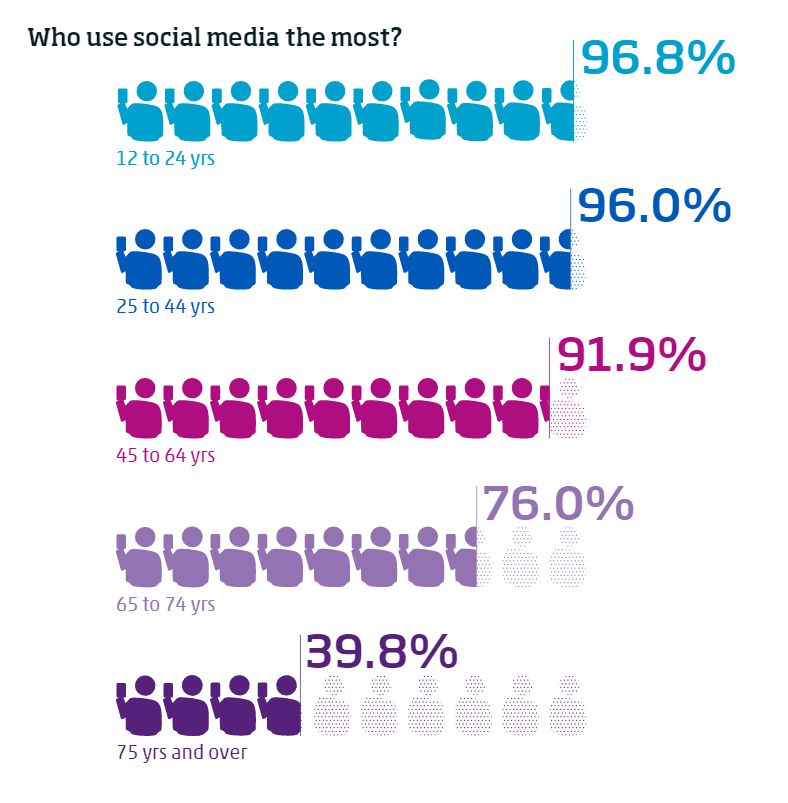“Social media causes depression”. “Teens should not make use of social media”. We hear a lot of these negative statements about social media these days. Is there some truth to these accusations or is it just the initial rejection to a new trend, like we have seen in the past so many times?
A possible problem
No matter how hard you try to avoid it, social media has changed the way people interact with each other. It speeds up the rate of interaction, and lets us communicate with people all around the globe. This sounds like a great development, and it may well be, but there seems to be more and more evidence suggesting social media may have some downsides.
In 2014, just 55% percent of people years 12 or older were using social media in the Netherlands. In 2019, this number had already risen to 63% and has only been growing since (CBS). If social media has an effect on mental health, a lot of people are dealing with the effects. And the problem is not only in the absolute numbers. Social media is used the most by adolescents, a group vulnerable for mental health problems. The potential of the negative effects is huge, and this is why a lot of research is currently being conducted into the effects of social media.

The effects
Ok, so what do these studies tell us? Let`s start with a disclaimer: Social media has not been around for a very long time, so the effects on the long term are relatively unknown. There have been quite some studies that suggest effects on the short term however.
This 2019 study suggests that teenagers using social media for more than 3 hours a day on average, had higher chances of experiencing aggression, anxiety and depression and there are more studies with similar results out there. Almost all of the studies agree on the fact that the group most affected seems to be teenage girls. This might be to the fact that boys are more likely to seek confrontation using physicality, while girls are more likely to gossip, which is made easier by using social media.
The mental health in the U.S. (where most of the studies are from) seems to be declining. This study shows a 37% increase in the likelihood of depressive episodes among adolescents, while this study finds a 25% increase in suicide attempts between 2009 and 2017. This can of course not directly be linked with social media, but it seems to follow the same pattern at the same time as the average social media use.
Social media may also indirectly be the source of mental health problems by stimulating unhealthy behavior. This study links social media usage to sleep problems, which at its turn can cause mental health problems. Another danger on social media is cyberbullying. This study did find that almost half of the individuals between 10 – 18 had at some point been subjected to cyberbullying. While I could not find a study to support the claim, I think that cyberbullying may contribute to mental health problems.
Social media gives us the opportunity to keep contact with all our friends and discover the world all from our own home, but it should also be used with care. Most of the effects found in the studies seemed to scale with the amount of social media usage. So maybe the instruction should be: Use social media, but use it in moderation.



I agree that social media must have some influence on people’s mental health and body-image, though I do not want to give social media all the blame. There are multiple reasons adding up to our declining mental health. Nonetheless, it is also about how you use social media and what you mostly look at. Social media is not only a place for selfies and holiday photos, but it is also a place where people can learn and support each other. At the end of the day it is also about how social media is used in our daily lives.